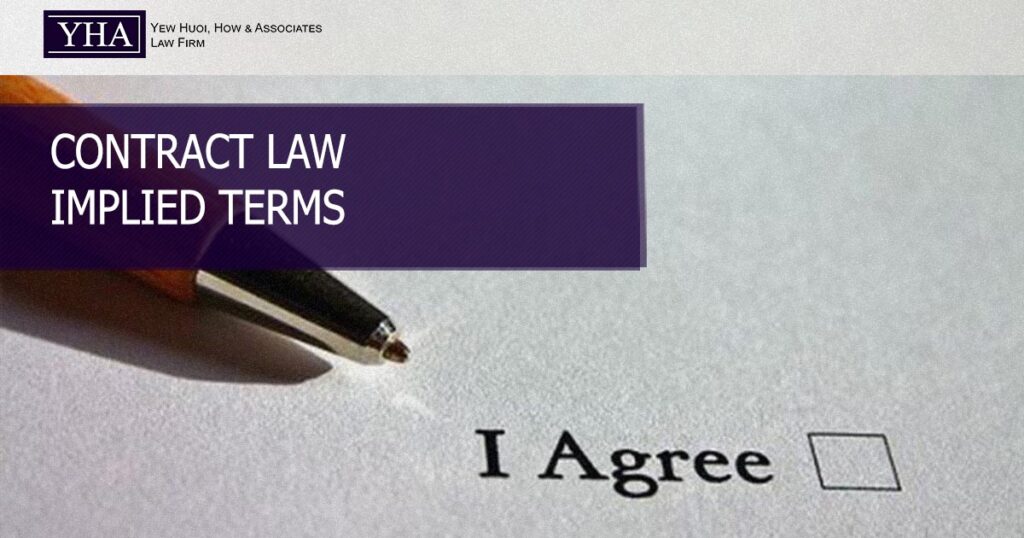I have a sale contract which does not set out terms which should have been there in the first place. For example, it is a contract to purchase electrical items. There is no term that says the electrical items should be in working condition.
What can I do?
- You can apply to court to imply terms into the contract.
How can I imply terms into a contract?
- There are 3 types of implied terms as follows:
- Terms implied from the conduct of the parties;
- Terms implied by operation of law; and
- Terms implied by custom or usage.
What is terms implied from the conduct of the parties?
- This is typically done when court infers from evidence that the parties to a contract must have intended to include it in the contract (though it is not clearly set out in the contract).
- The court will apply 2 test to decide whether to imply term in the first category can be done as follows:
- Business efficacy of the transaction; and
- Officious bystander test.
- Both tests have to be satisfied for the court to imply terms into the contract.
What is business efficacy of the transaction test?
- Business efficacy means the desired result of the business in question. This is to ensure the contract works as intended and to achieve their commercial objectives.
- In this case, if it is a contract for sale and purchase electrical items for reselling to the consumer market, it makes very little commercial sense the buyer would want to purchase items that is not in working condition. He would not be able to resell the electrical items.
What about Officious bystander test?
- This is the test where the court will decide whether the term is something so obvious that it goes without saying.
- This test is satisfied when the parties were making the contract and an officious bystander were to suggest whether an express term ought to be inserted into the agreement, the parties would testily say “oh, of course”.
What is terms implied operation of law?
- Court will infer terms based on cases of specified facts or from statutory provisions.
What is terms implied by custom or usage?
- This is where terms are implied by custom or usage of the market or trade which is reasonable.
- Custom and usage are evidence which can be introduced for this purpose under Section 92(e) of the Evidence Act 1950.
Case in point : Sababumi (Sandakan) Sdn Bhd v Datuk Yap Pak Leong [1998] 3 MLJ 151

